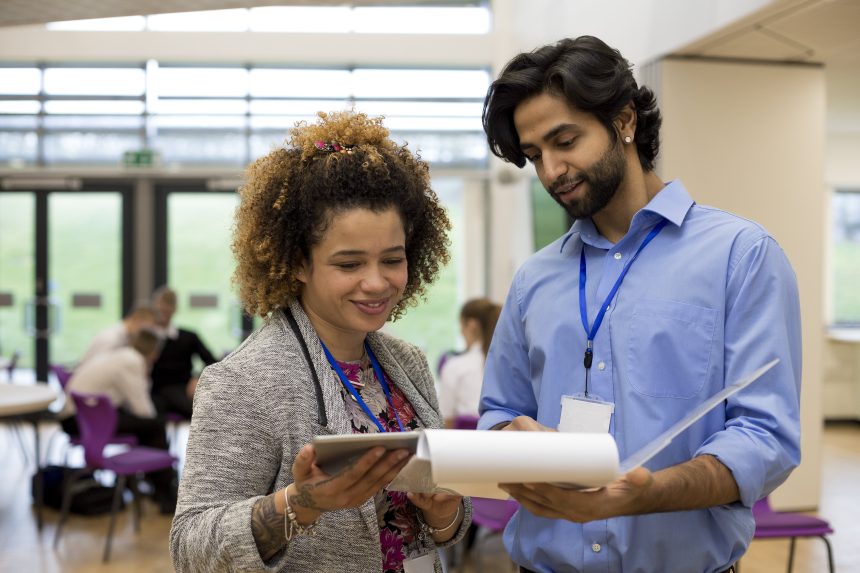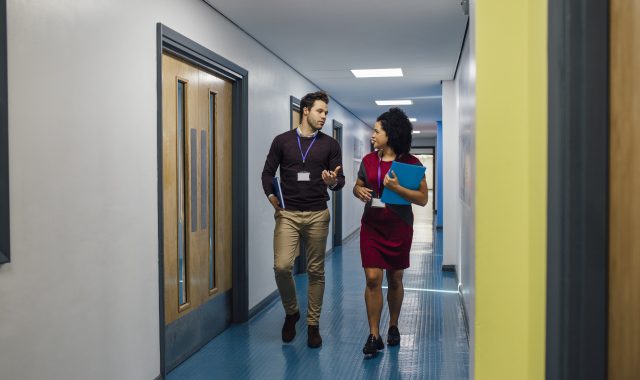Contents:
If you are successful, how will you adapt to your new role as an existing member of staff?
This was the question posed to me in my formal interview in 2020 for the role of Assistant Vice Principal for teaching, learning and curriculum. My answer at the time was very naïve…“everyone knows me, everyone knows how hard I work, I would hope that this would stand me in good stead to make the leap.”
In my experience, there is an invisible divide in schools between staff and the senior leadership team. It is a divide that we should all help to demolish as it is harmful to the overall culture in schools. Colleagues who are internally successful in making this transition from Curriculum Leader to Senior Leader have the power to make this change in their organisation.
In this article, I hope to give helpful tips to others in this position that can help them to make the transition, and help to bring down this invisible wall!
Being a leader does not change who you are
Being true to yourself is the foundation of every good leader. I came back in the September after starting my role feeling like I needed to be different. I needed to cut off personal relationships with staff and keep my personal life hidden. I got this very wrong!
Relationships are the foundation of leading people. Without relationships, trust cannot form. High performing teams rely on trust.
Over time, I learnt from others (who were getting it right and getting it wrong) that forming relationships in the same way I had prior to being a Senior Leader was key to our organisation performance and our school culture. If you are making the move to Senior Leader in any organisation, do not lose that sense of relationship and being yourself with others.

You are not the enemy
Senior Leaders get bad press! But, you are not the enemy. We are all in education for the same reasons. We are all motivated by similar factors. We all share similar values.
As an internal candidate, you must take great pride in the fact that your school saw potential in you to lead the development of the school. I would argue, being an internal candidate is often harder than external. They know you! Your flaws, quirks, warts and all. And, they still wanted you as their leader. Try not to lose that thought. Especially at times when people may be against your ideas or you receive backlash over a change you want to make.
Change can be a scary thing, but at these times you are not the enemy, and any challenges to your decision making are not aimed at you personally.
Ask for advice
Accepting that you do not know everything is important. You are not supposed to know everything. We are all learning. Imposter syndrome is normal, and it needs beating with a stick!
Asking for advice and feedback from a wide range of sources that you trust is a great way to reconsider your direction and help you to make better decisions.
Reach out to a diverse group of people when you need to. The different perspectives can help you to realign and refocus. This can also help you form and foster positive relationships with a wider group of people in your organisation.

Focus on your ‘why’
When times get tough and challenges occur (which they will), try to return to your ‘why’. Why do I do this? Why did I become a leader?
My ‘why’ is twofold; I want to ensure that we give the best opportunities to the young people and families we serve whilst showing my two young sons that their mummy is resilient and committed to making a difference.
Returning to these moments often and regularly helps you to refocus. I personally have a wall of pictures and cards from ex students which remind me of the difference I made. I also have a picture of my two sons on my desk. This constant reminder gets me through difficult days.
I hope these tips help to ease your transition to senior leadership! Let me know about your experiences on Twitter @MsGHist.







Comments